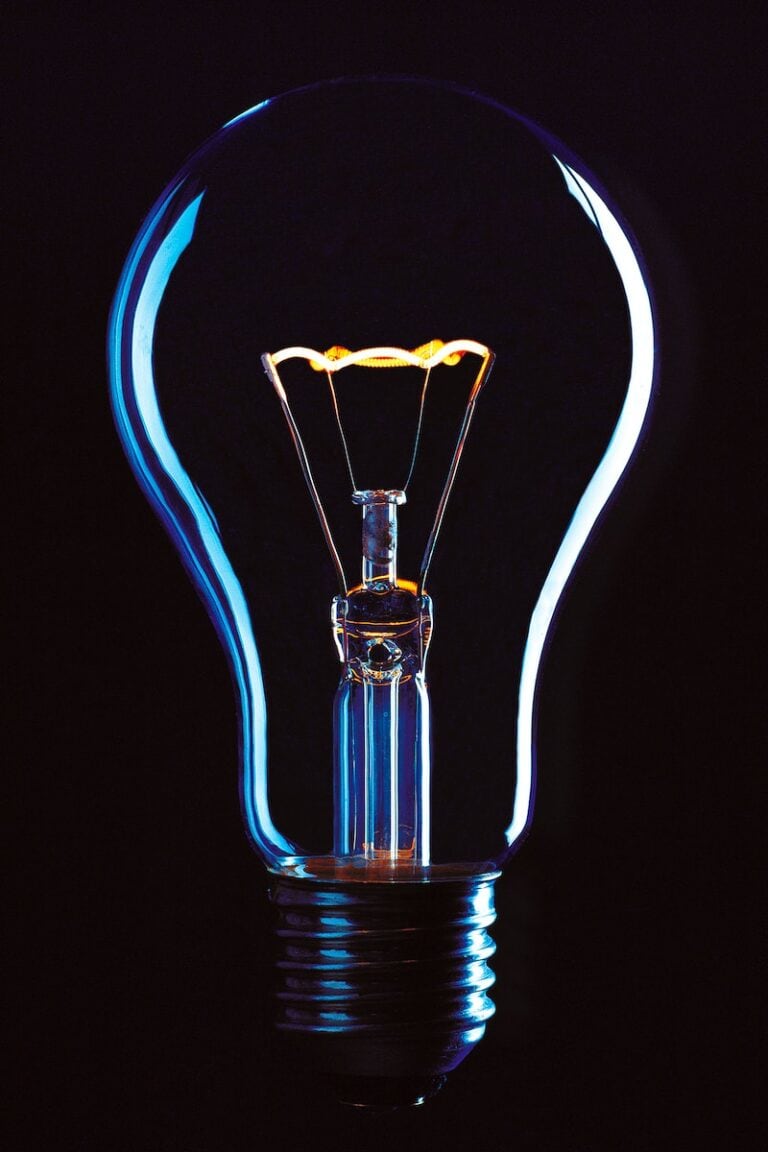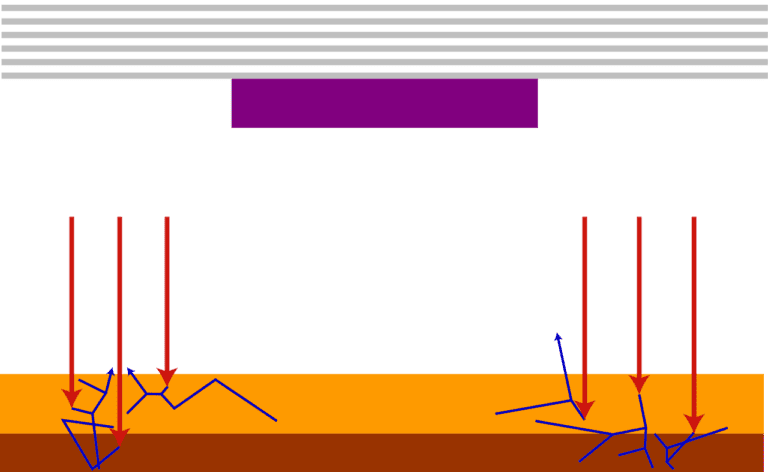Image Credit: fullofstars, CC BY-SA 3.0 http://creativecommons.org/licenses/by-sa/3.0/, via Wikimedia Commons
Fuzzy logic offers a unique method for dealing with problems that have uncertain or imprecise information. Unlike traditional binary logic, which deals with clear true or false values, fuzzy logic operates within a spectrum of possibilities. It allows systems to make decisions in a way that mimics human reasoning more closely.
Fuzzy logic uses “degrees of truth” instead of the conventional “true or false” approach. This means it can handle reasoning that is vague or approximate. By capturing the complexities and nuances of real-life situations, fuzzy logic enhances decision-making processes in fields such as artificial intelligence and computing.
For instance, in AI and robotics, fuzzy logic systems improve interaction capabilities. They enable smoother responses and more adaptive behaviors. This technology also plays a critical role in areas like automotive systems and consumer electronics, where it helps manage uncertain data and deliver better user experiences.
Beyond Binary: Fuzzy Logic in the Real World
Understanding Fuzzy Logic: A Simple Explanation
Fuzzy logic isn’t about vague thinking. It’s a way to model uncertainty and make decisions when things aren’t black and white. Unlike traditional logic, which deals with absolutes (yes or no), fuzzy logic allows for degrees of truth. It’s like saying something is “mostly true” or “somewhat false.” This makes it a powerful tool for handling real-world problems where things are rarely clear-cut.
Real-World Applications of Fuzzy Logic
Fuzzy logic has found its way into many industries, improving products and processes. Let’s explore some key examples:
1. Consumer Electronics:
- Washing machines: Fuzzy logic sensors determine the best wash cycle based on factors like load size and dirt level, saving water and energy.
- Air conditioners: Fuzzy logic thermostats maintain a comfortable temperature by adjusting fan speed and cooling intensity based on room conditions.
- Cameras: Fuzzy logic algorithms help cameras focus quickly and accurately, even in challenging lighting conditions.
2. Automotive Industry:
- Anti-lock braking systems (ABS): Fuzzy logic helps ABS systems apply the right amount of braking force to prevent wheel lockup during sudden stops.
- Automatic transmissions: Fuzzy logic optimizes gear shifting based on driving conditions, improving fuel efficiency and performance.
- Cruise control: Fuzzy logic adapts to changes in road conditions and traffic, maintaining a safe and comfortable speed.
3. Industrial Applications:
- Chemical processes: Fuzzy logic controls complex chemical reactions, adjusting parameters like temperature and pressure to optimize output and safety.
- Robotics: Fuzzy logic enables robots to make decisions and respond to their environment in a more human-like way.
- Manufacturing: Fuzzy logic optimizes production processes, minimizing waste and maximizing efficiency.
Benefits of Fuzzy Logic
Fuzzy logic offers several advantages over traditional logic:
- Handles uncertainty: Real-world problems often involve uncertainty, and fuzzy logic excels at dealing with it.
- Mimics human reasoning: Fuzzy logic allows systems to make decisions based on vague or incomplete information, similar to how humans reason.
- Robustness: Fuzzy systems are less sensitive to minor changes or errors in input data, making them more reliable.
- Easy to understand and implement: Fuzzy logic rules are based on simple “if-then” statements, making them easy to understand and program.
Table: Fuzzy Logic Applications Across Industries
| Industry | Application |
|---|---|
| Consumer Electronics | Washing machines, air conditioners, cameras, rice cookers |
| Automotive | Anti-lock brakes, automatic transmissions, cruise control |
| Industrial | Chemical processes, robotics, manufacturing |
| Healthcare | Medical diagnosis, drug delivery systems |
| Finance | Risk assessment, stock trading |
Key Takeaways
- Fuzzy logic operates with multiple truth values.
- It improves decision-making where data is uncertain.
- It enhances AI and computing systems.
Foundations of Fuzzy Logic
Fuzzy logic provides a more nuanced approach compared to traditional Boolean logic. It captures the intricacies of reasoning with degrees of truth rather than binary true/false values.
Understanding Fuzzy Sets and Logic
Fuzzy logic hinges on the concept of fuzzy sets. Unlike classical sets where elements are either in or out, fuzzy sets have degrees of membership.
An element can partially belong to a fuzzy set with a membership value between 0 and 1. These values are often used in natural language and decision-making processes where binary values fall short. Important terms here include fuzzy connectives, T-Norms, and fuzzy negation.
For instance, when evaluating temperature, instead of just “hot” or “cold,” fuzzy logic allows for classifications like “slightly hot” or “very hot”.
Mathematical Principles and Operations
Fuzzy logic incorporates several mathematical principles. It extends classical logic with operations that handle intermediate values.
Key concepts include T-Norms (Triangular Norms) like the Łukasiewicz T-Norm, which helps in modeling the “and” operation in fuzzy logic. There’s also the Ordinal Sum, which is used to combine different T-Norms.
In fuzzy logic, implication and negation take different meanings than in Boolean logic. Computational complexity is another important aspect, impacting how fuzzy systems are implemented in computers.
Development and Variations of Fuzzy Logic
Fuzzy logic has evolved through various stages. Initial concepts laid by Lotfi Zadeh have expanded significantly. Different variants like Monoidal T-Norm-Based Logic (MTL) and various axiomatic systems (like those from Klement, Mesiar, or Pap) have diversified its applications.
There are different proof systems like the Hilbert-style proof system, used to derive theorems within fuzzy logic. Many-valued logic is another development, which accommodates more than two truth values, reflecting the complexities found in real-world scenarios.
These foundations enable the usage of fuzzy logic in areas requiring nuanced decision-making, beyond the capabilities of binary logic systems.
Frequently Asked Questions
This section addresses common questions about the applications, roles, differences, examples, and principles of fuzzy logic.
What are the real-life applications of fuzzy logic?
Fuzzy logic is used in many areas like climate control, washing machines, and even in medical diagnostics. It helps systems make decisions when exact information is not available.
What is the role of fuzzy logic in artificial intelligence?
In AI, fuzzy logic helps machines mimic human decision-making. This allows systems to handle uncertain and imprecise information, making them more adaptable and flexible.
How does fuzzy logic differ from traditional binary logic?
Traditional binary logic uses true or false values. Fuzzy logic, in contrast, allows for a range of values between 0 and 1. This makes it better at handling uncertainty and gradations in data.
Can you provide examples where fuzzy logic is applied in machine learning?
Fuzzy logic can be used with clustering algorithms to simplify data classification. It also works well in systems where rules and patterns are not strictly defined.
What are the advantages and disadvantages of implementing fuzzy logic in systems?
Advantages include flexibility and the ability to handle uncertain data. Disadvantages include complexity in setting up rules and potential computational overhead.
What are the fundamental principles and stages involved in designing a fuzzy logic system?
Designing a fuzzy logic system involves defining input and output variables, creating membership functions, and setting up rules. Stages include fuzzification, rule evaluation, and defuzzification.







